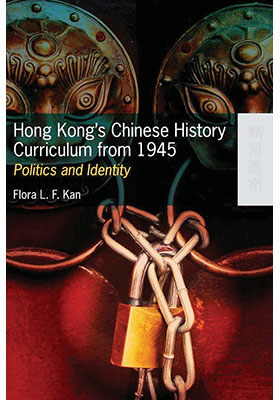Hong Kong’s Chinese History Curriculum from 1945
Politics and Identity
(1945年以來香港的中國歷史課程:政治與身份)
ISBN : 978-962-209-836-7
January 2007
192 pages, 6.25″ x 9.25″
Ebooks
Also Available on
Hong Kong’s Chinese History Curriculum from 1945: Politics and Identity investigates the ways in which Chinese history has evolved as a subject in Hong Kong secondary schools since 1945, and the various social, political and economic factors that have shaped the curriculum, through an examination of a wide range of primary and secondary source materials and interviews.
This book examines how the aims, content, teaching, learning and assessment of the Chinese history curriculum have evolved since 1945. It describes how Chinese history became an independent subject in secondary schools in Hong Kong despite the political sensitivity of the subject, how it consolidated its status during the colonial period, and how it has faced threats to its independence since the return of Hong Kong to China in 1997. An important element of the book is its in-depth analysis of the major socio-political and socio-economic forces that have been involved in the development of Chinese history.
This book will be of interest to all who are interested in history education and curriculum development, and readers who are concerned with history education.
“This book provides a fascinating account, in English, of the history of the Chinese history curriculum in Hong Kong’s schools since 1945. By analysing the changes to the subject through the interactions at three different levels—the macro, meso and micro—the book provides a powerful insight into the socio-political history of Hong Kong.” —Paul Morris, The Hong Kong Institute of Education
“It is important for the field that history scholars do searching analyses of events and actions that occurred in Hong Kong over the last six decades. Dr Flora Kan has done a masterly analysis of the politics over this period and she has also mapped out very well the searching for an identity for Chinese history. Curriculum scholars in particular will be fascinated by this account of establishing Chinese History as a subject. Similar efforts to get recognition status for subjects in other countries also involve much contestation and the searching for compromise solutions. This is an important volume for teachers, academics, and administrators in Hong Kong. It will also be of considerable interest to academics working in other countries.” —Colin J. Marsh, Curtin University of Technology, Perth, Western Australia



